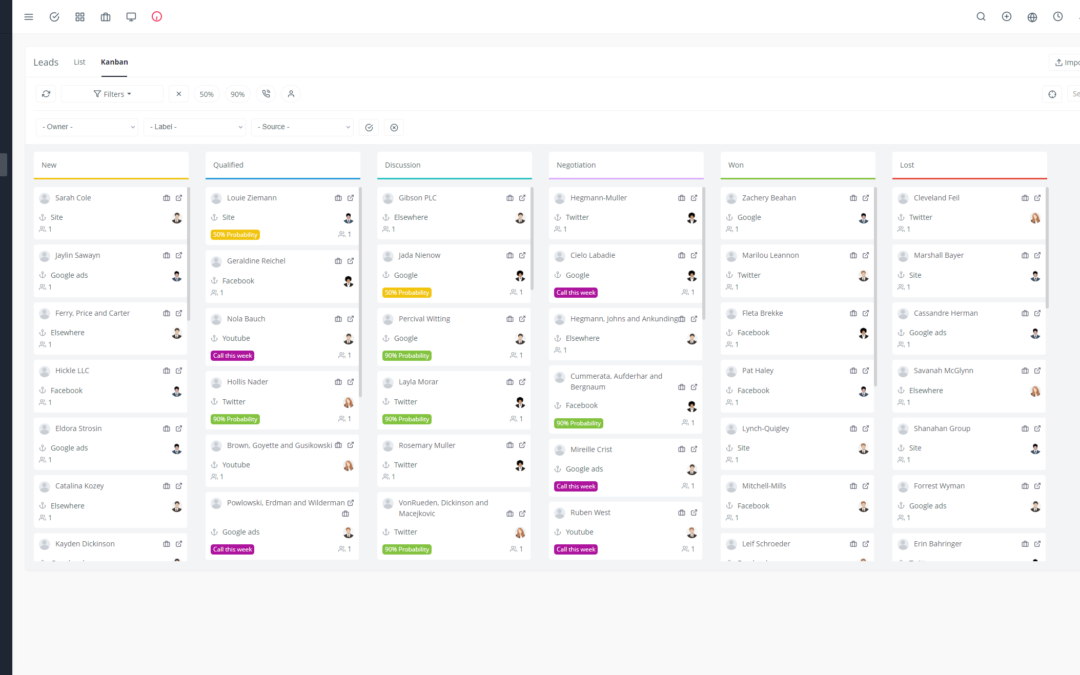Introduction to Yoneos’s Knowledge Management System (KMS)
Yoneos’s Knowledge Management System (KMS) is a powerful tool designed to help businesses centralize, manage, and share their knowledge effectively. 🧠 This system allows you to store information, documents, processes, and training materials in a single location accessible to all employees.
The Importance of Add-ons for Your KMS
Yoneos add-ons play a crucial role in extending the core functionality of your KMS, allowing you to tailor it to the specific needs of your business. 🧩 They allow you to integrate new features, automate tasks, and improve the overall user experience.
Add-ons for Document Management
Version Control: Track document versions to ensure consistency and accuracy of information. 📑
Cloud Storage: Securely store documents in the cloud for easy access and better collaboration. ☁️
Advanced Search: Easily find specific documents using keywords, metadata, and filters. 🔍
Add-ons for Collaboration and Knowledge Sharing
Discussion Forums: Encourage communication and the exchange of ideas among employees. 💬
Internal Wiki: Allows teams to create and share collaborative documents. ✍️
Collaborative Workspaces: Create dedicated spaces for specific projects or teams to facilitate collaboration. 🤝
Add-ons for Information Retrieval and Search
Semantic Search: Improves the accuracy of search results by analyzing the context and meaning of queries. 🧠
Knowledge Mapping: Allows you to visualize the connections between different pieces of information and easily navigate your knowledge base. 🗺️
Sentiment Analysis: Determine the general opinion on a topic or product based on comments and discussions. 📊
Add-ons for Training and Mentoring
Online Training Platform: Allows you to create and deliver online training courses, tutorials, and webinars. 💻
Performance Tracking: Monitor employee progress and their understanding of training materials. 📈
Knowledge Assessment: Evaluate employee comprehension through quizzes and tests. 📚
Add-ons for Process Management
Process Automation: Automate repetitive tasks to save time and improve efficiency. 🤖
Workflow Management: Manage workflows and approval processes for better organization. ➡️
Process Tracking: Track progress of processes and identify bottlenecks. 📊
Add-ons for Analytics and Reporting
Dashboards and Reports: Provide key insights on KMS usage and its impact on your business. 📈
Data Analysis: Detect trends and relevant insights from KMS data. 📊
Artificial Intelligence (AI): Utilize AI to automate tasks, predict trends, and improve decision making. 🤖
Add-ons for Integration with Other Systems
CRM Integration: Synchronize KMS data with CRM systems for a complete customer view. 🤝
ERP Integration: Integrate KMS data with ERP systems for better internal process management. 🤝
Integration with Communication Tools: Integrate KMS with communication tools like Slack or Microsoft Teams. 💬
Add-ons for Security and Compliance
Access Control: Manage permissions and access levels to KMS information. 🔐
Data Encryption: Protect sensitive KMS data from unauthorized access. 🔒
Regulatory Compliance: Ensure KMS compliance with regulatory requirements. ⚖️
Choosing the Right Add-ons for Your Specific Needs
Before choosing add-ons, it’s essential to clearly define your business’s specific needs. 🎯 Analyze the weaknesses of your current KMS and identify features that could be improved.
Benefits of Using Add-ons
Improved Efficiency: Automate tasks and streamline processes. ⏱️
Increased Productivity: Quick and easy access to information. 📈
Better Collaboration: Facilitate knowledge sharing and communication. 🤝
More Informed Decision Making: Access richer and more relevant information. 🧠
Reduced Costs: Automate tasks and optimize processes. 💰
Examples of Popular Add-ons
Google Drive: Integration with Google Drive for secure cloud storage. ☁️
Slack: Integration with Slack for smoother communication. 💬
Microsoft Teams: Integration with Microsoft Teams for collaboration and file sharing. 🤝
Zapier: Automate tasks between different applications. 🤖
Tips for Implementing Add-ons
Planning and Preparation: Define needs, goals, and budget. 🎯
Training and Documentation: Train users and provide comprehensive documentation. 📚
Testing and Validation: Test add-ons before deploying them. 🧪
Support and Maintenance: Ensure ongoing technical support and regular maintenance. 🔧
Best Practices for Using Add-ons
Choose high-quality and reliable add-ons. 👍
Integrate add-ons consistently and logically. 🧩
Train users on add-ons and their functionalities. 📚
Track add-on usage and KMS performance. 📈
Alternative Solutions to Yoneos’s KMS
Other KMS solutions are available on the market, such as Confluence, SharePoint, and Google Drive.
Conclusion: Add-ons as a Business Investment
Yoneos add-ons are a valuable investment for businesses seeking to enhance their knowledge management systems. 💰 They allow you to tailor your KMS to your specific business needs, increase efficiency, and boost collaboration.
Key Takeaways
Add-ons extend the functionality of Yoneos’s KMS. 🧩
There is a wide variety of add-ons available for different needs. 🧠
Choosing the right add-ons is essential for maximum efficiency. 🎯
Add-ons can improve collaboration, efficiency, and decision making. 📈
Calls to Action
Explore the available add-ons for Yoneos’s KMS. 🔎
Choose the add-ons that meet your specific business needs. 🎯
Implement the add-ons effectively and optimize their usage. 🚀
Additional Resources
https://yoneos.com(https://www.Yoneoscrm.com/)
https://app.yoneos.com/signup(https://docs.Yoneoscrm.com/)
Remember, Yoneos add-ons can transform your knowledge management system into a powerful asset for your business! 🏆

